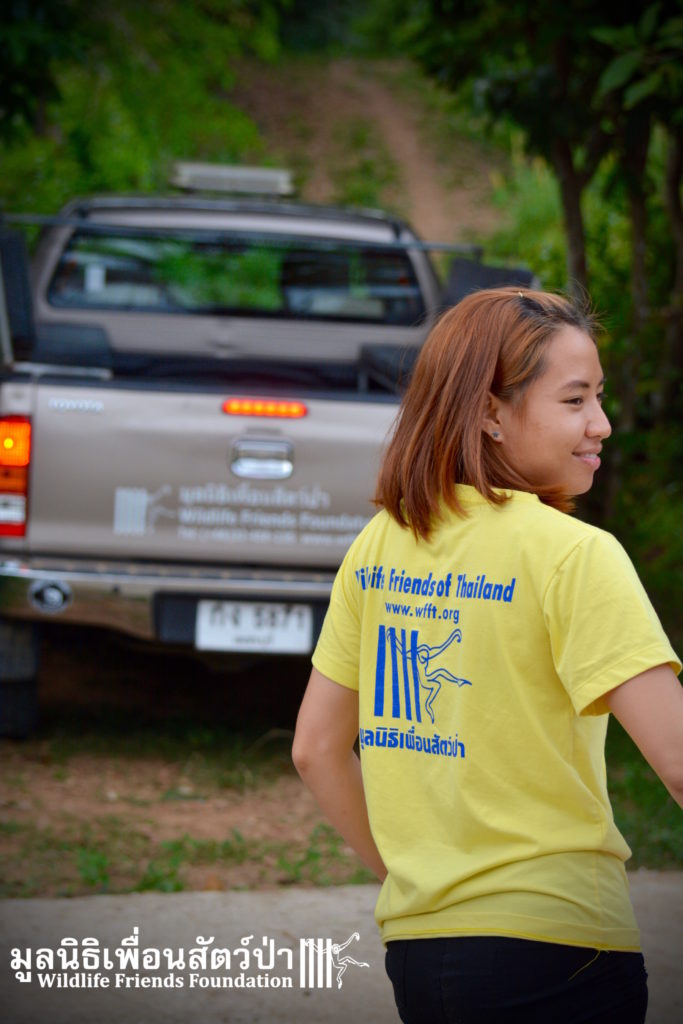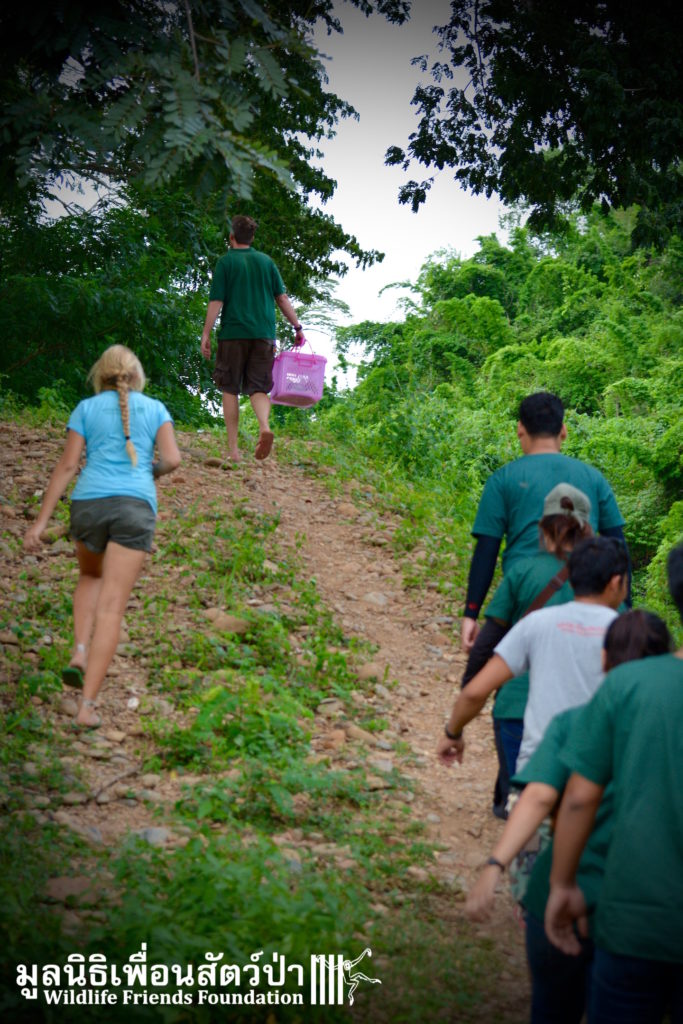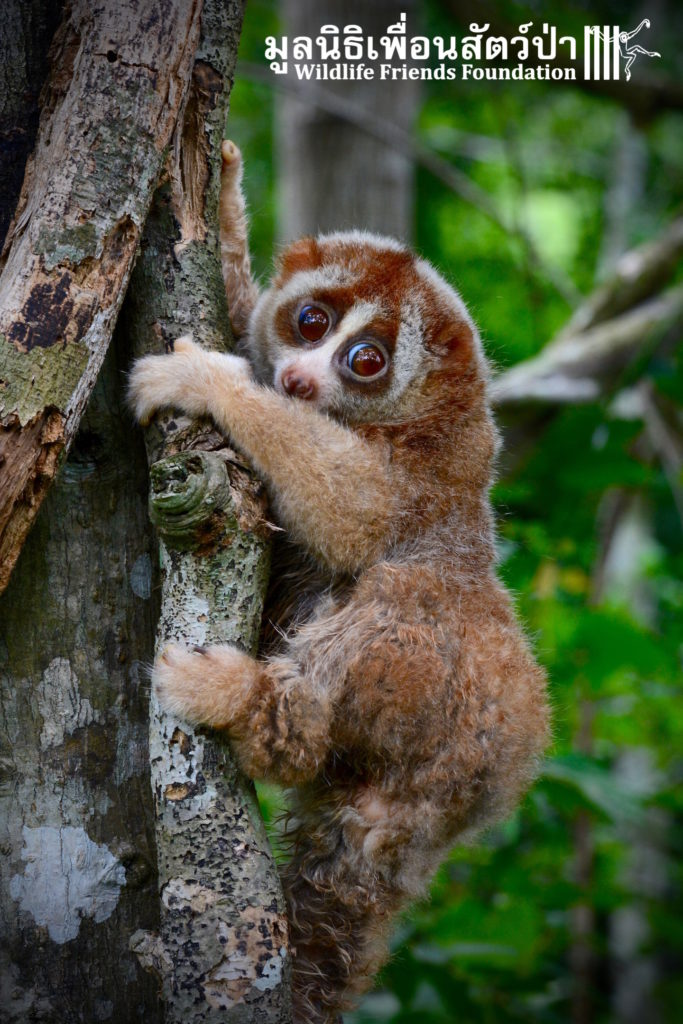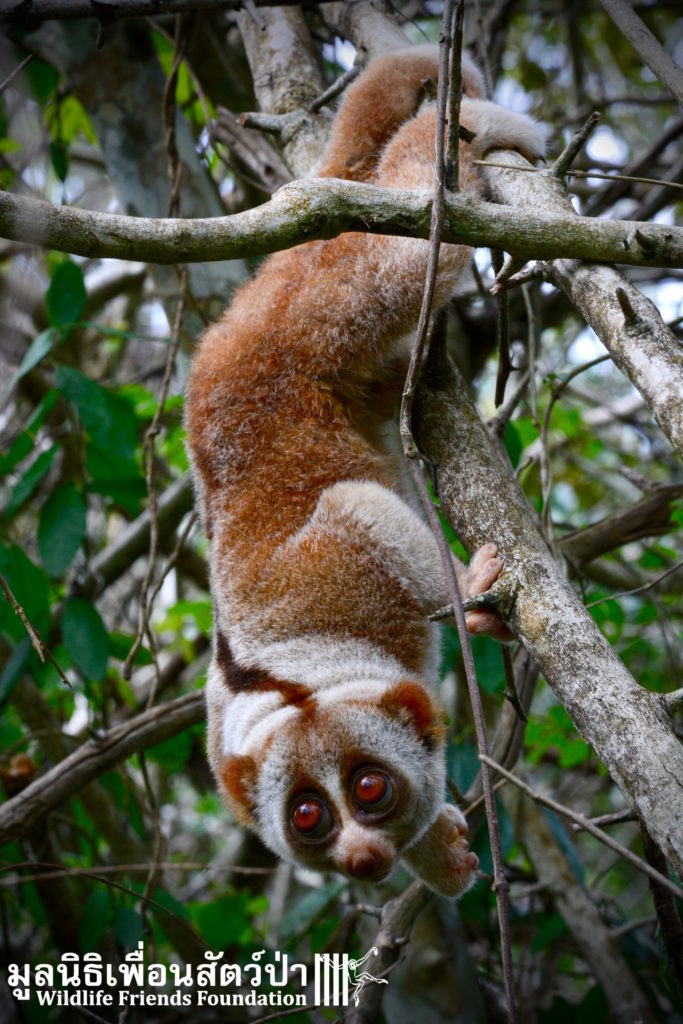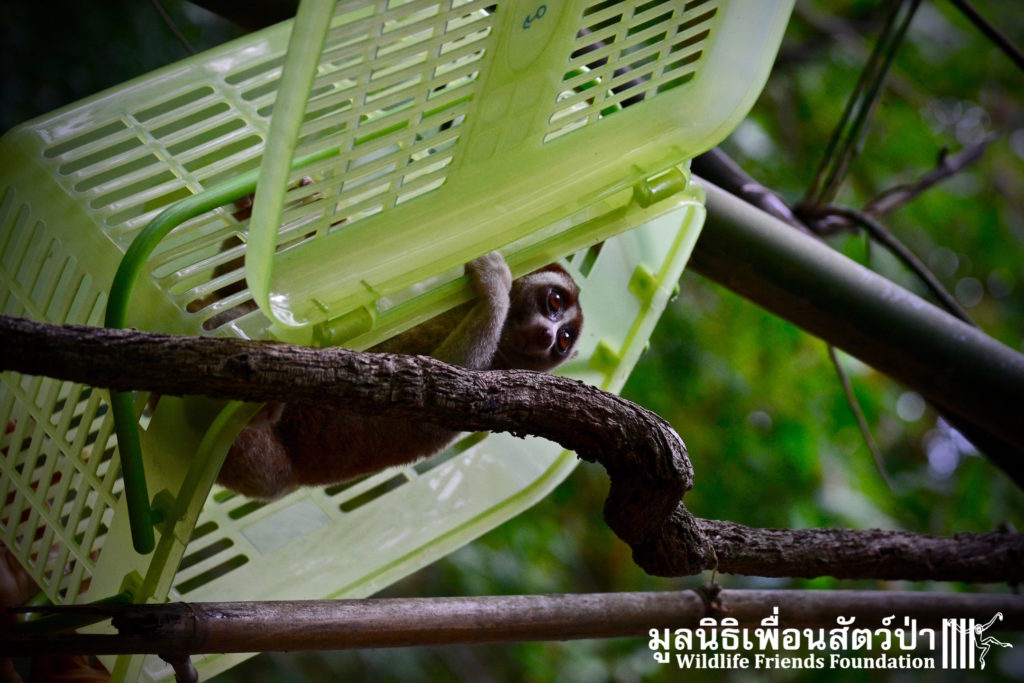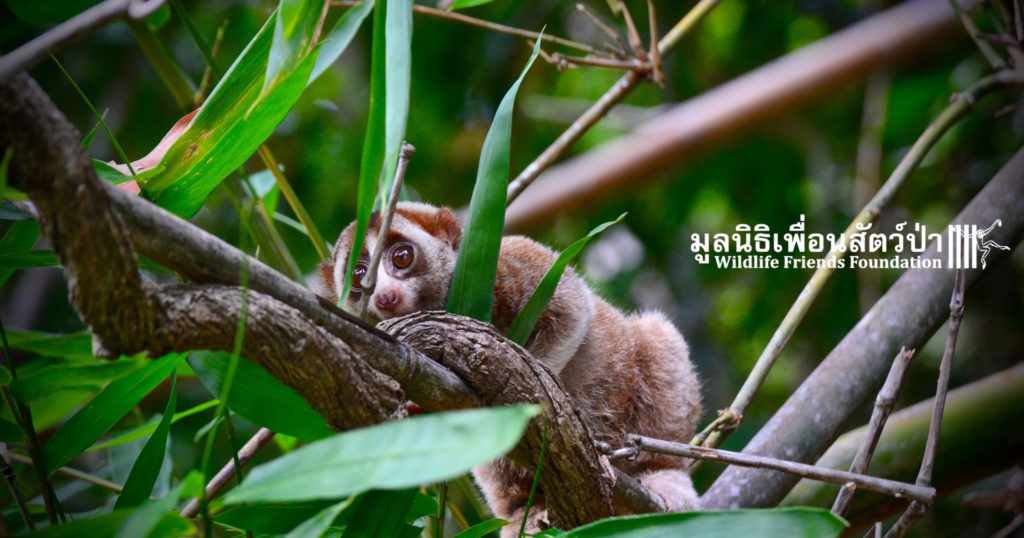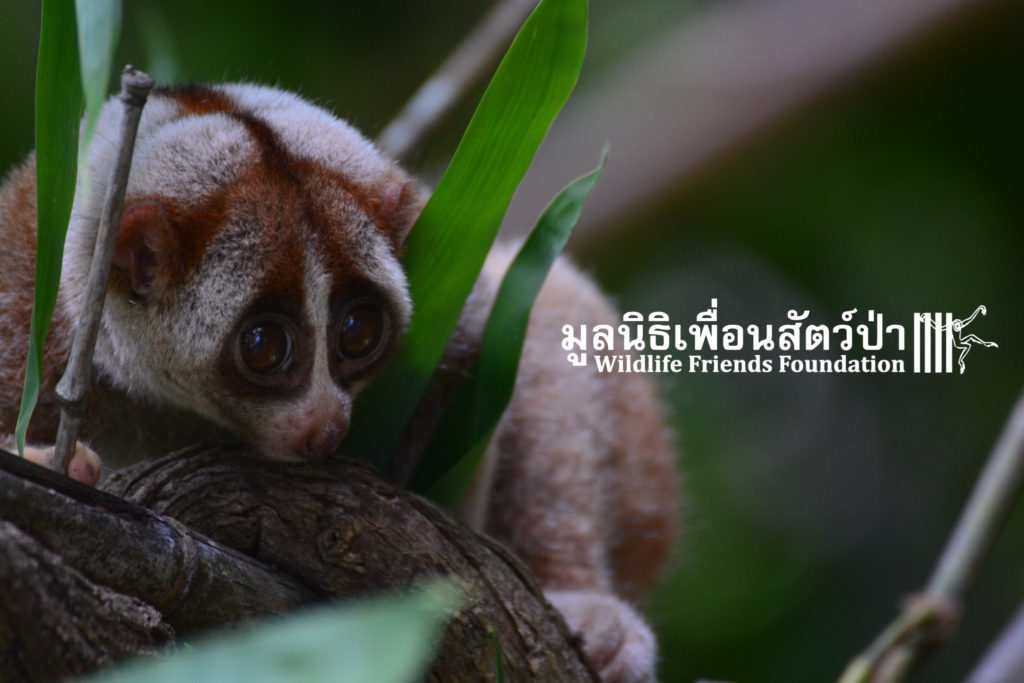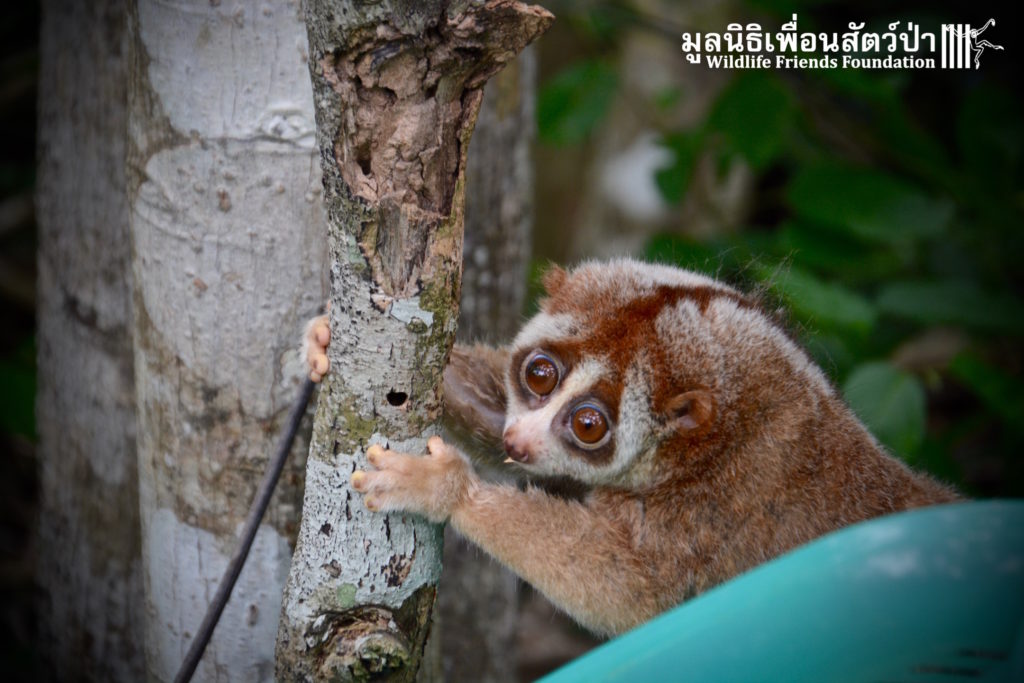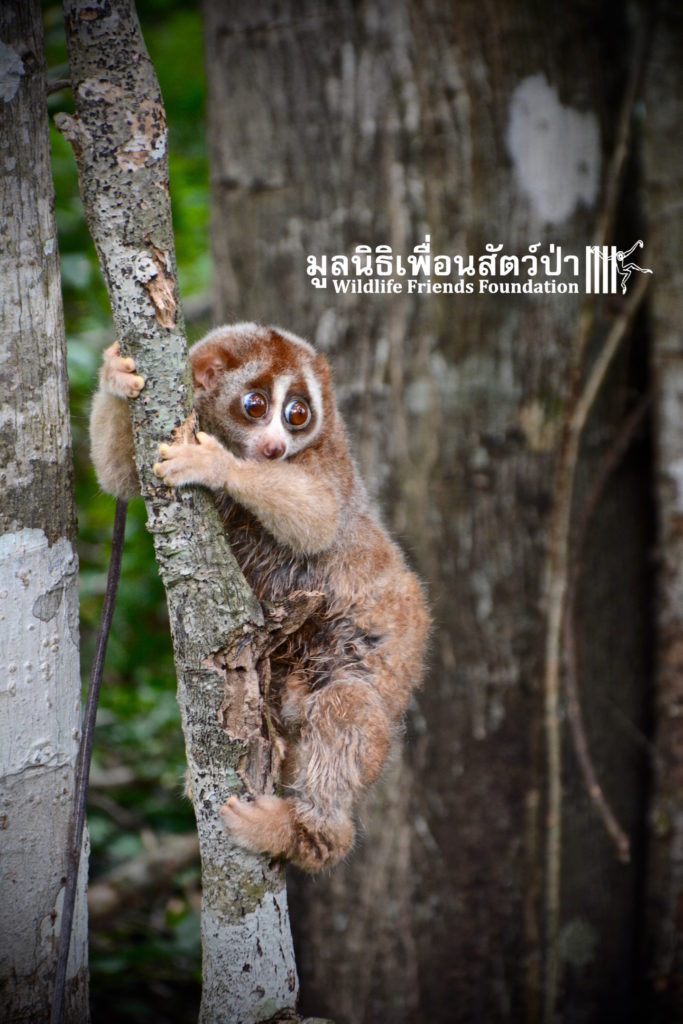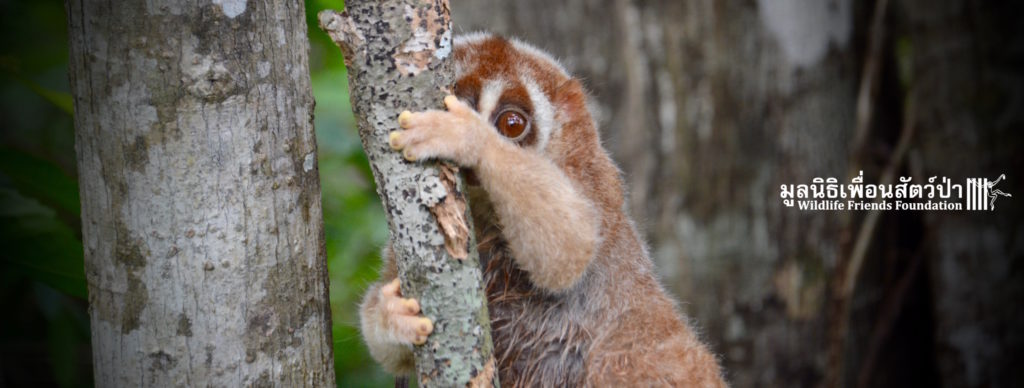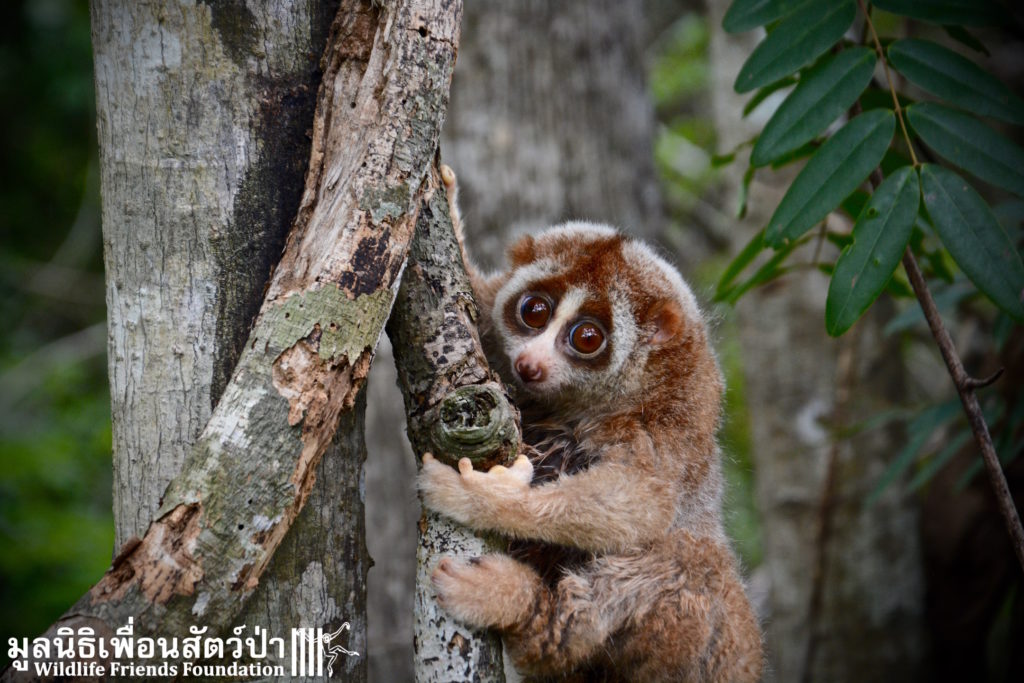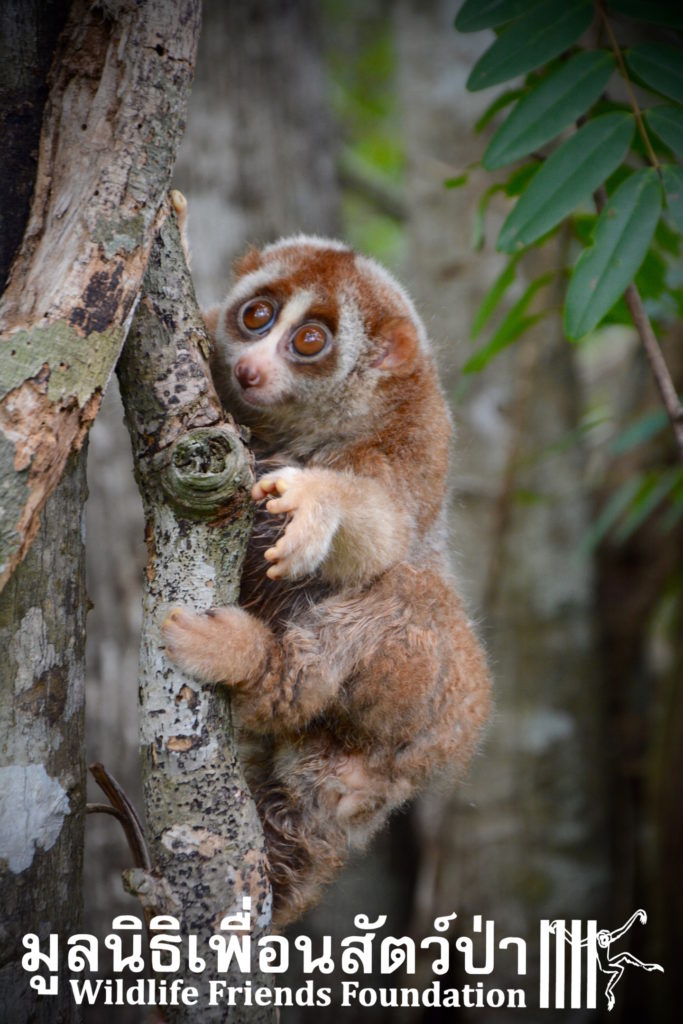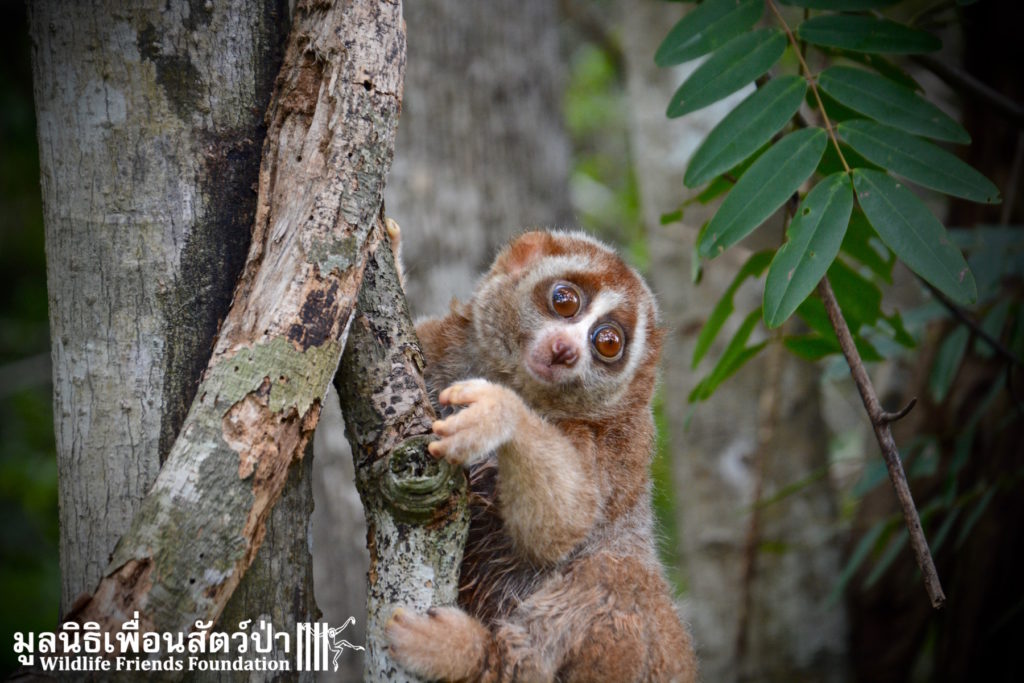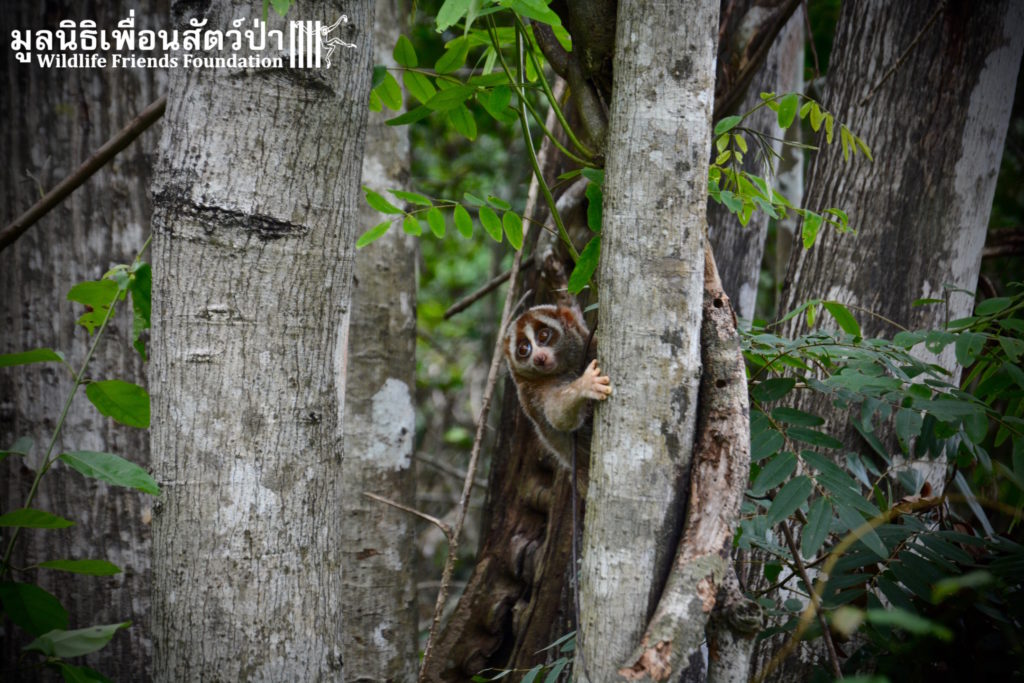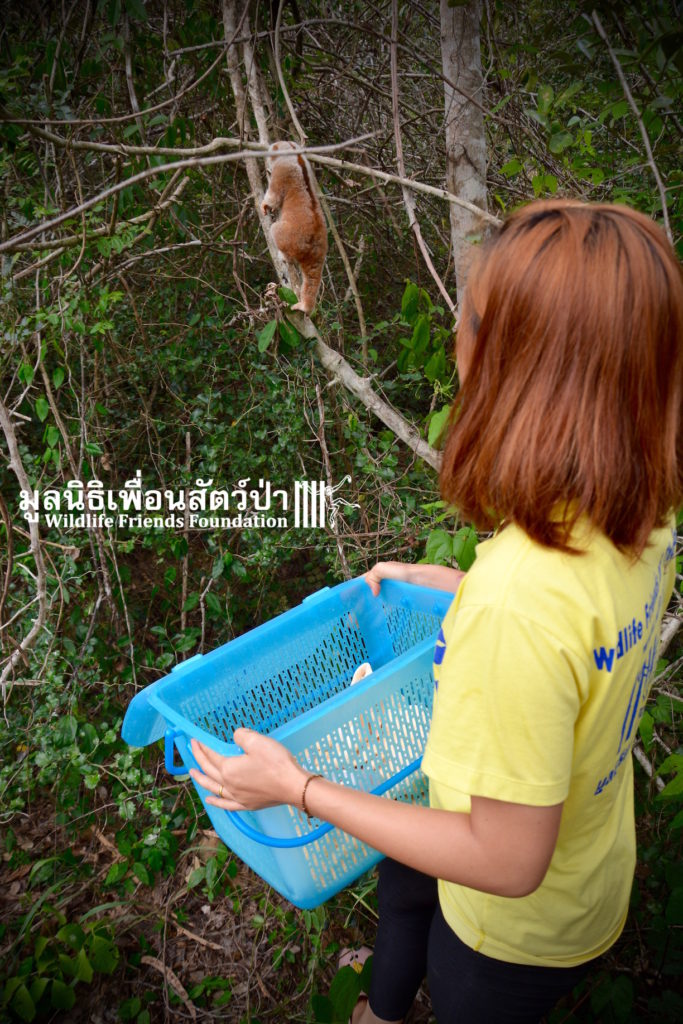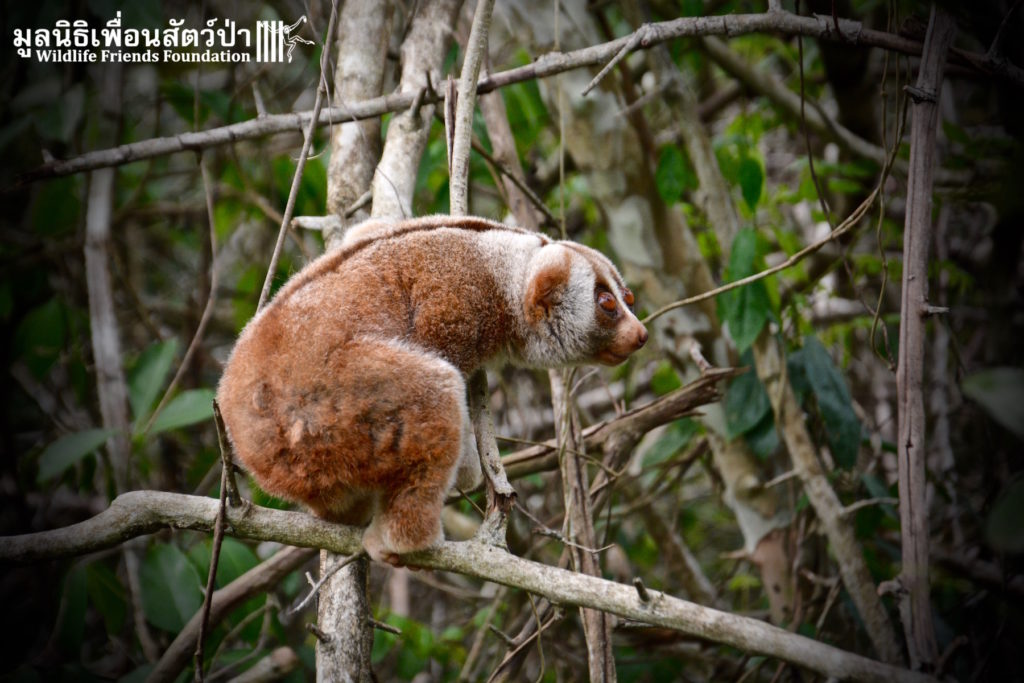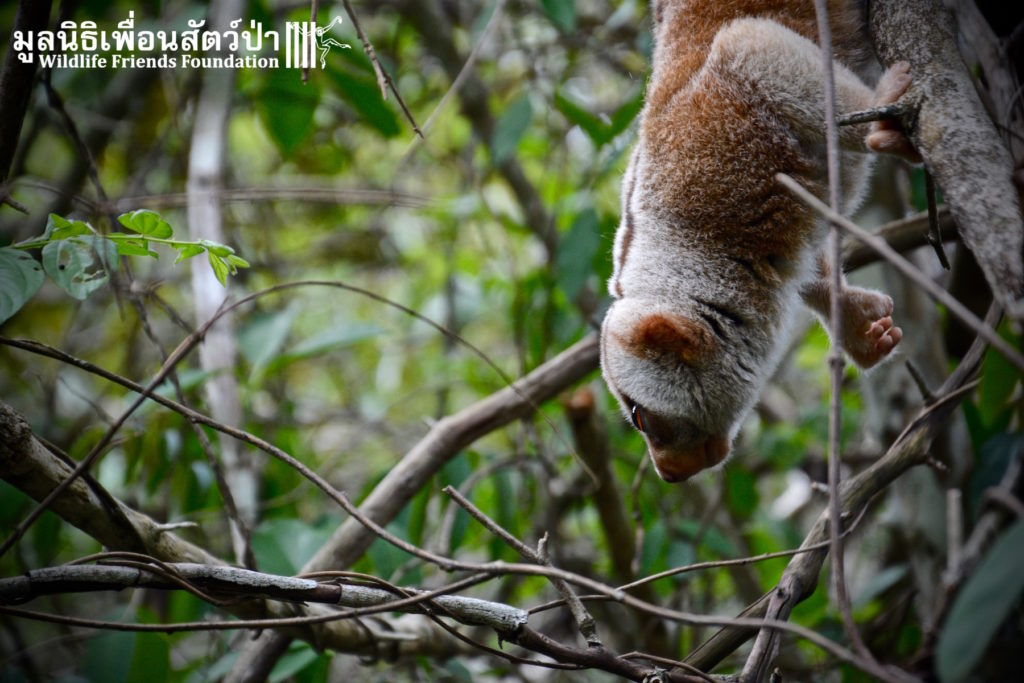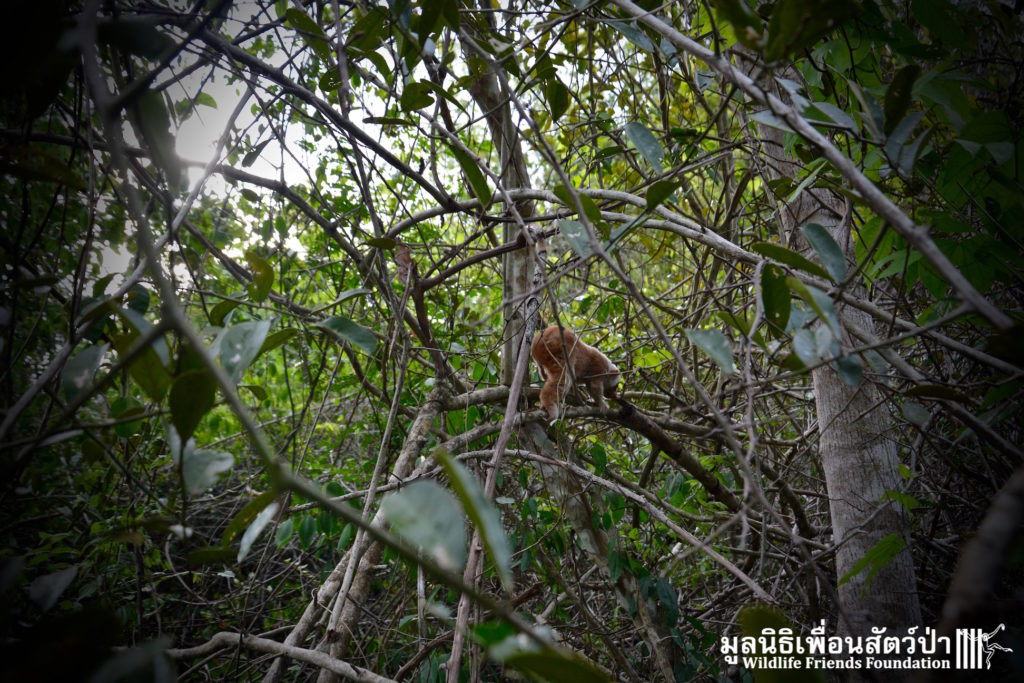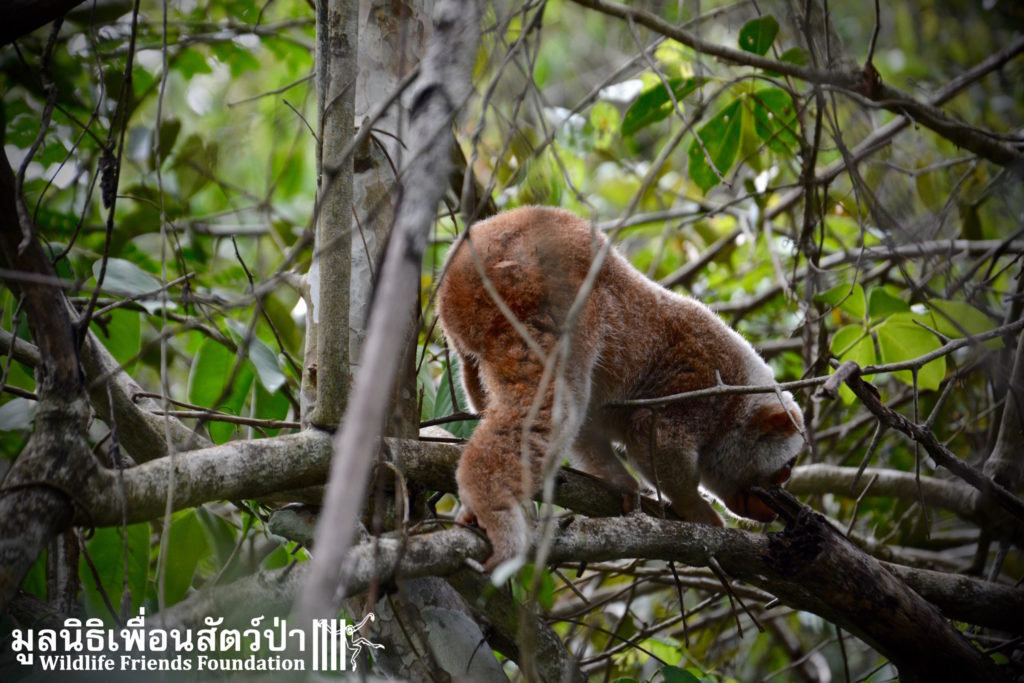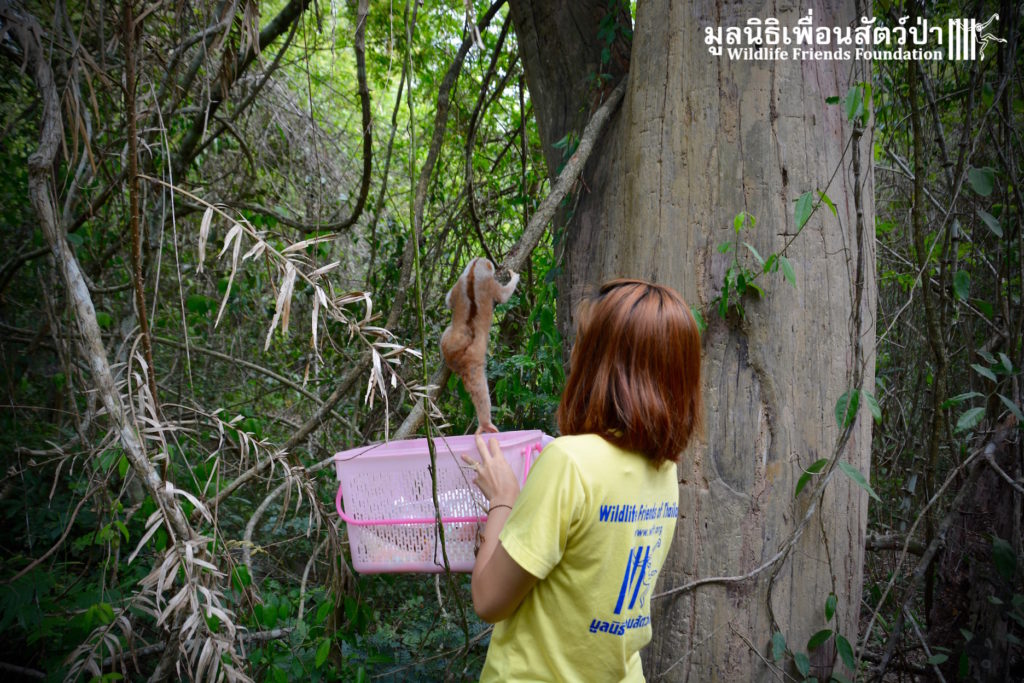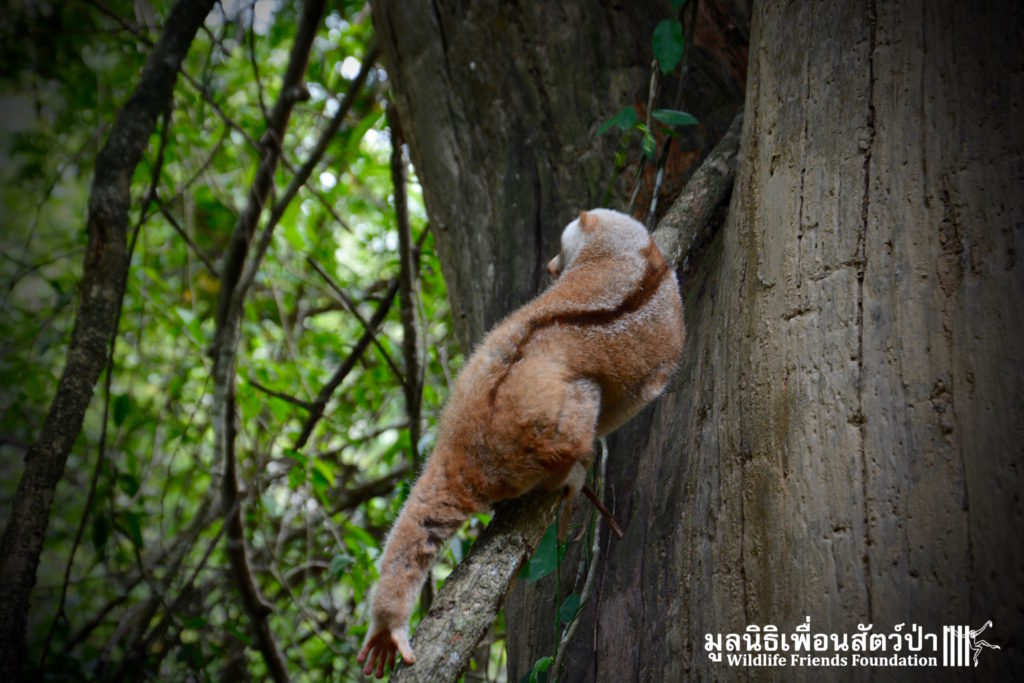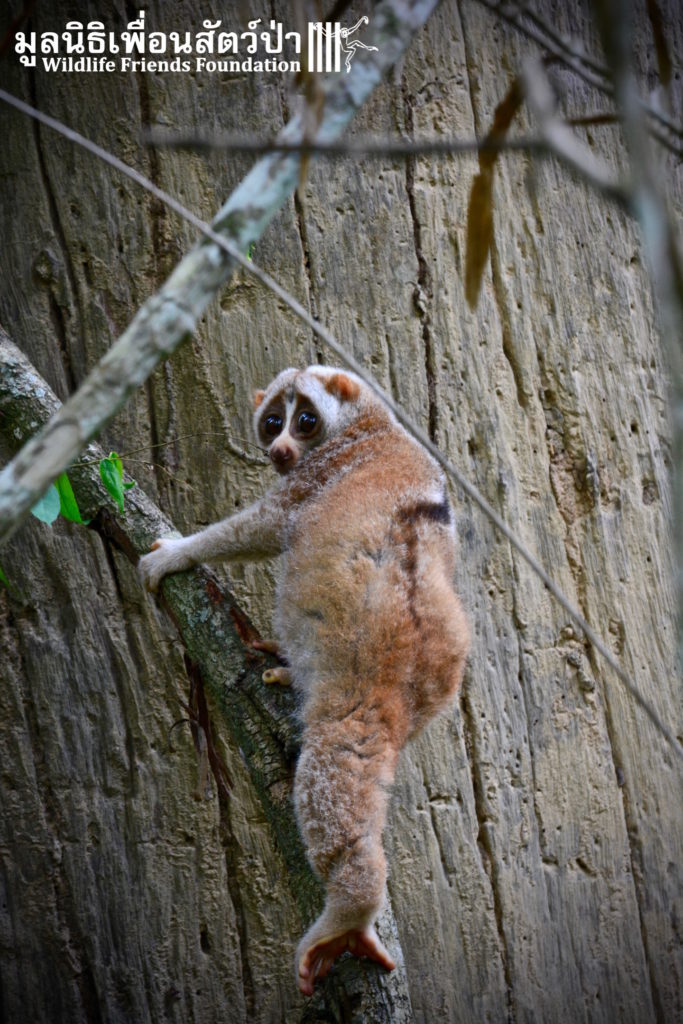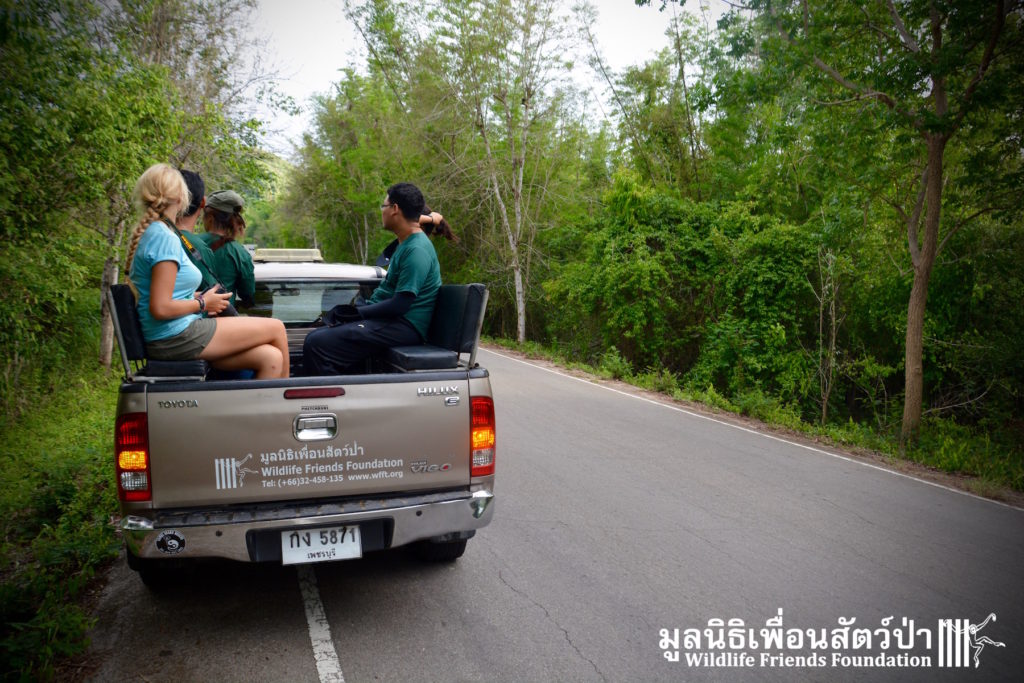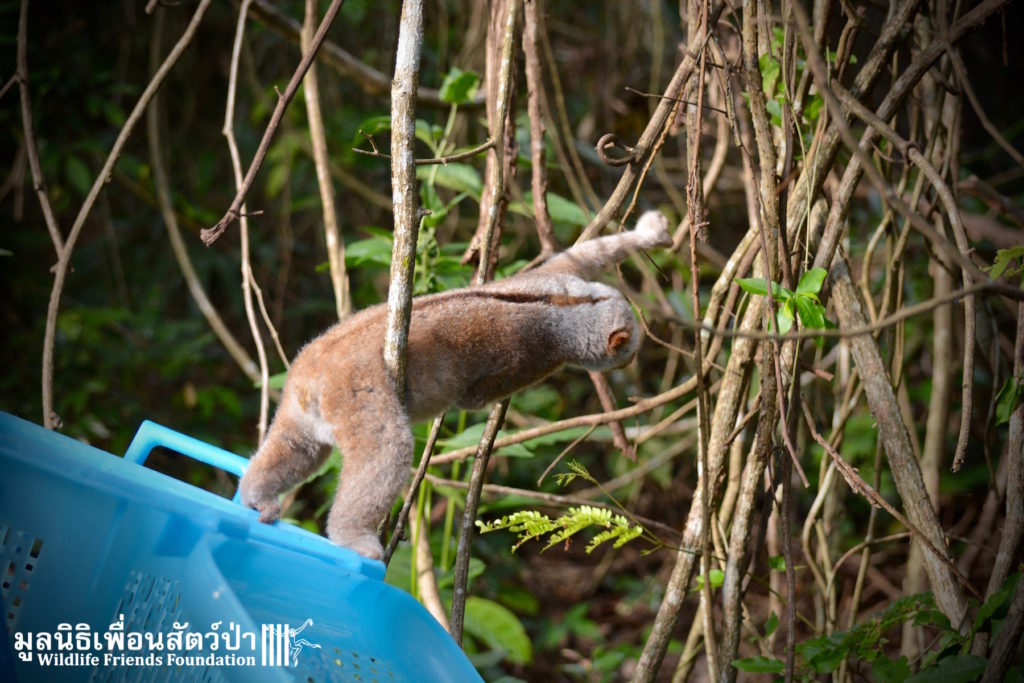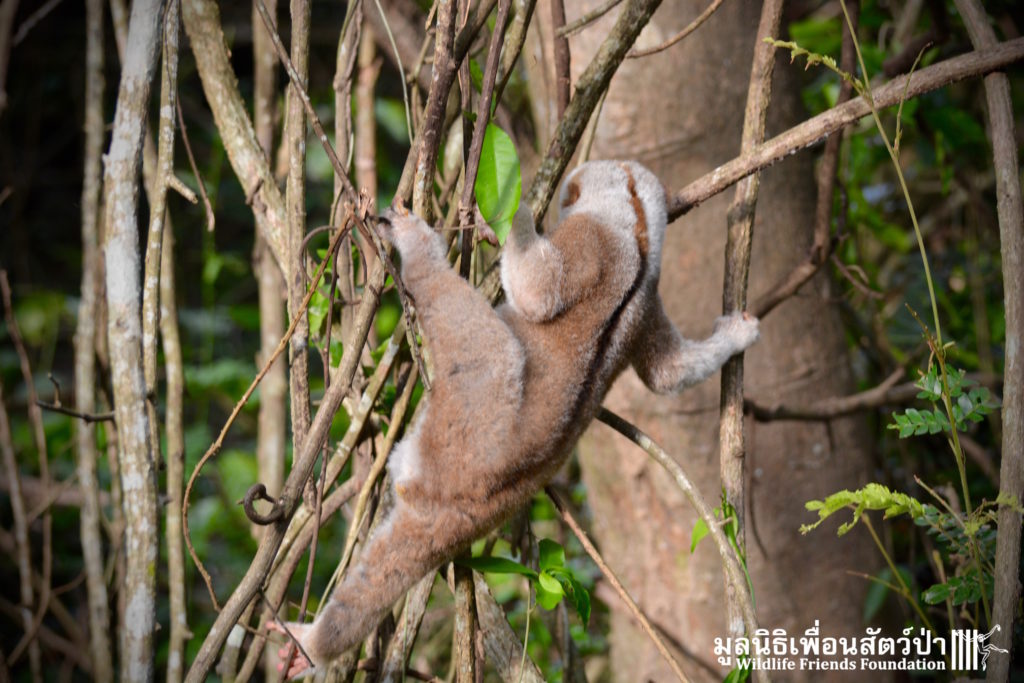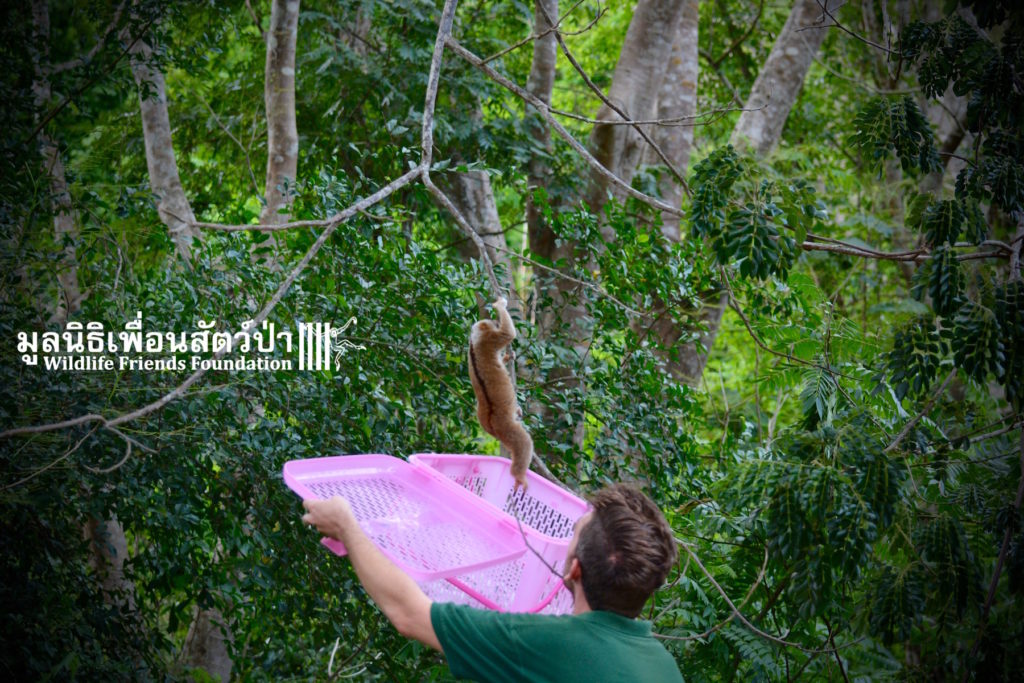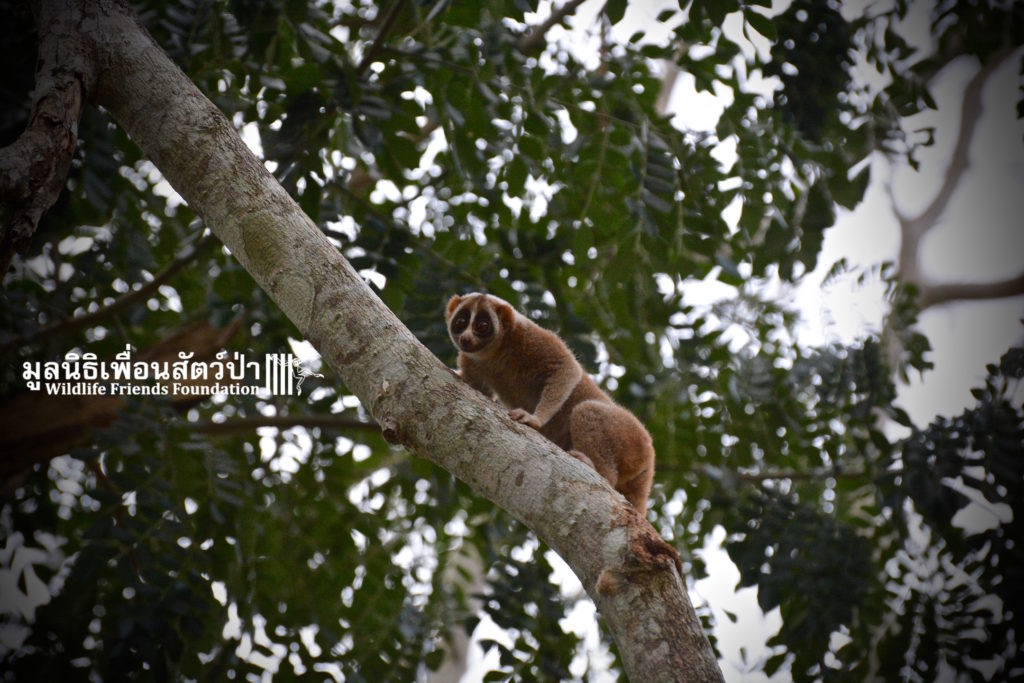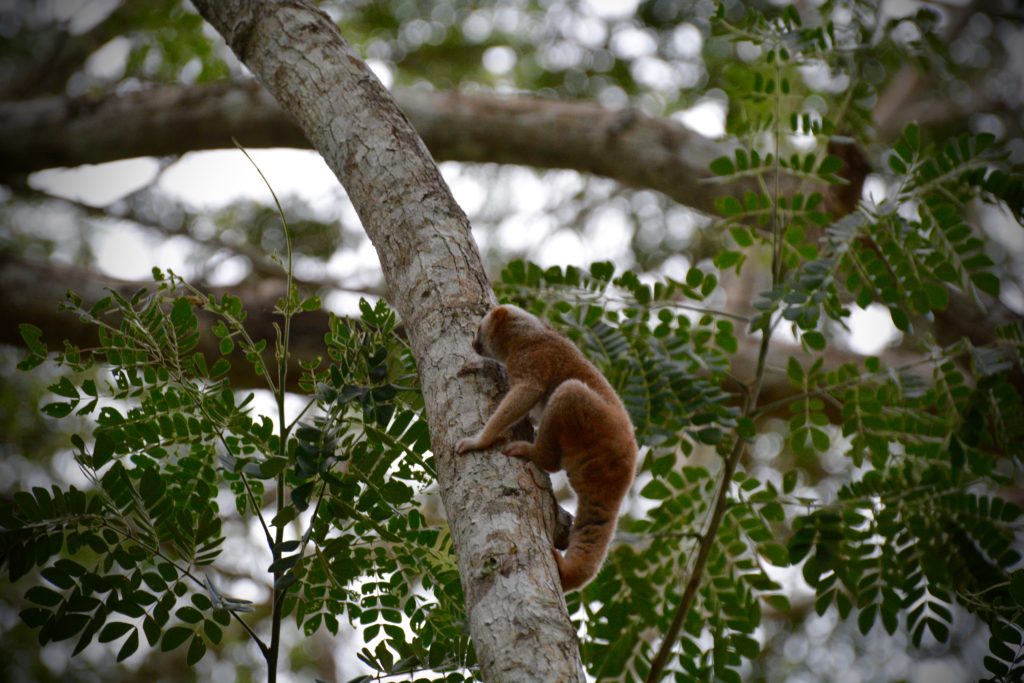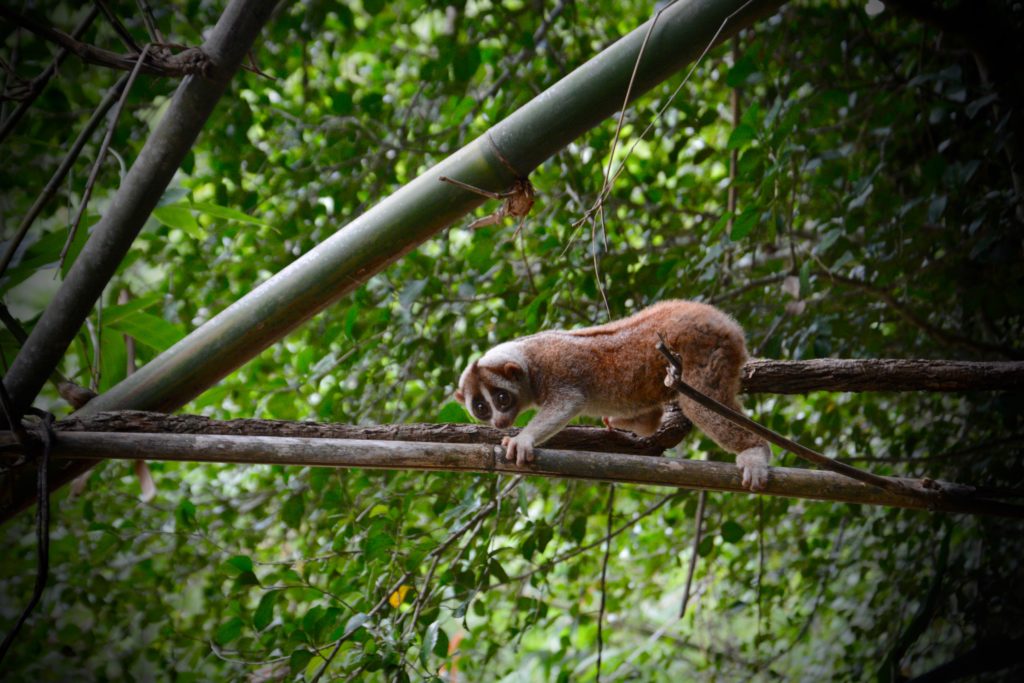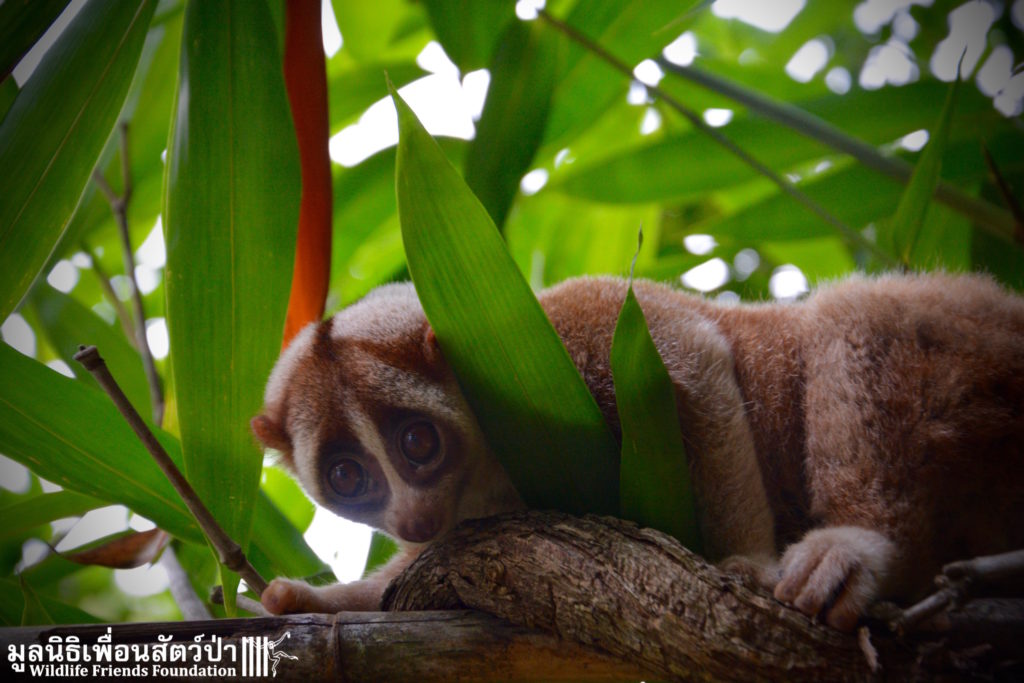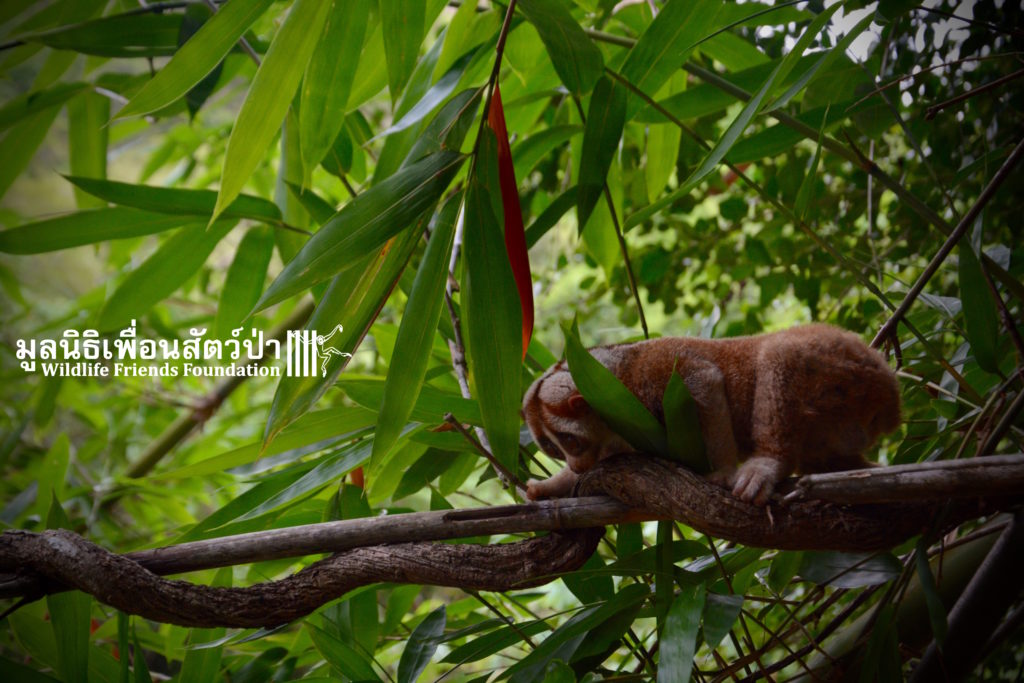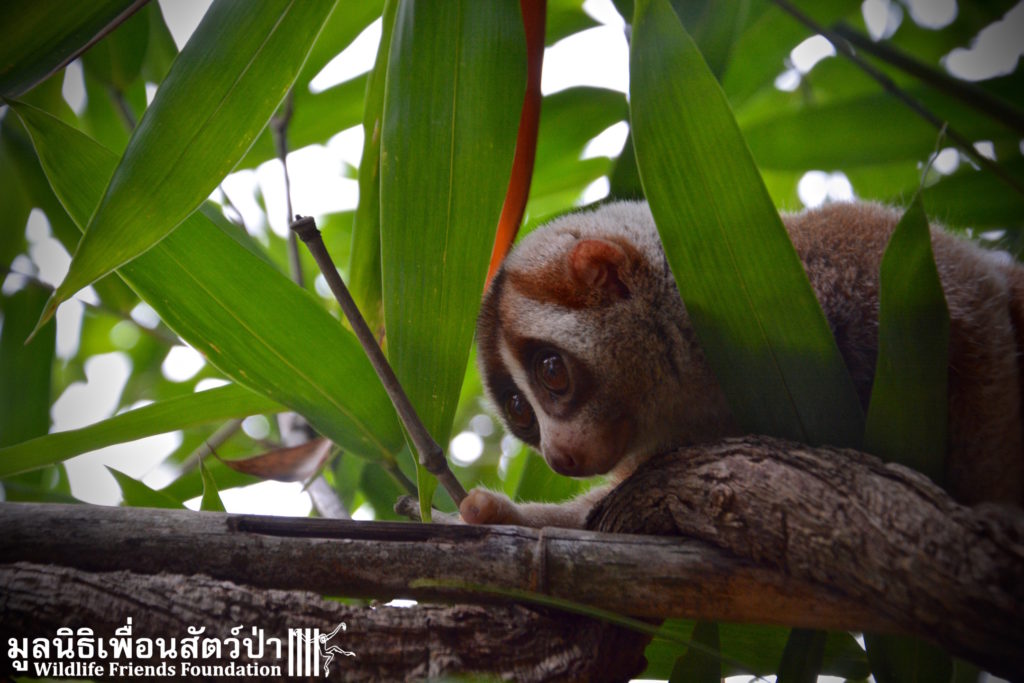After three weeks of dedicated care at the WFFT wildlife hospital, Wang, a wild long-tailed macaque from a local temple, successfully recuperated and was released back to his habitat.
Run Wild Little Ones – 6 Slow Lorises Return Home….
Yesterday we said goodbye to some short-term residents of the WFFT Wildlife Rescue, 6 ‘recently’ rescued Bengal slow lorises (Nycticebus bengalensis). Each of which had been rescued after being caught from the wild with the intention of them being sold into the illegal wildlife tourism industry or illegal pet trade. They have spent the last few months recovering at the WFFT Loris Rehabilitation Area getting ready to return home. As the rainy season starts, the forest habitats and abundance of food increases for many of the rescued species at WFFT, this is the reason for housing these lorises for a few months prior to release, ensuring upon release they have a better chance of survival.
So yesterday evening the team headed out to a local protected forest area, the lorsis were taken deep into an area covered in tropical rainforest, prime habitat for these little prosimian primates. They were each released at separate locations, all but two of them immediately climbed out of the transported cages and scampered up into the tree canopy, the other two were a little bit slower ascending into the trees, but after a few minutes they were off up into the trees.
The Bengal Slow Loris is listed as Vulnerable by the IUCN Red List of Threatened Species. This is due to loss of habitat and severe pressures from hunting, there is more than 30% reduction in population over three generations. The species is predicted to decline by more than 30% in the next three generations over its entire range due to continuing hunting pressures and loss of habitat. The major threats that this species’ habitat faces include farming, timber removal, human settlement, road building, dams, power lines, fragmentations, soil loss and erosion, and deliberately set fires. They are hunted and traded for food, traditional “medicine”, sport, and as pets
Each year we see increased numbers of lorises in need of help, fortunately these ones were able to return home, many of the lorises that arrive at WFFT need life long care and cannot return back to the wild, this may be because their canines have been extracted or because of poor eye sight and irreversible bone problems caused by inappropriate diet and husbandry. These are the lucky ones; they are now free, unfortunately this is not the outcome for most victims of the illegal wildlife trade. Keep wildlife wild and not a pets.
See the rescue stories below –
David, Stardust and Ziggy – www.wfft.org/
Nong Boui – http://www.wfft.org/
Vigo – http://www.wfft.org/
Yod – http://www.wfft.org/









